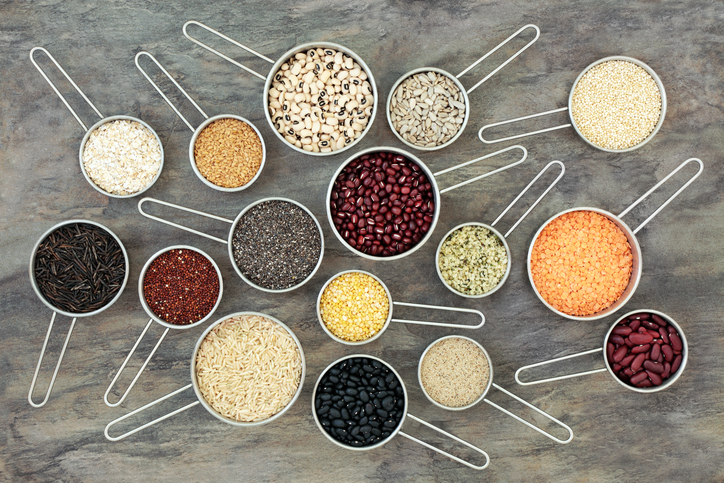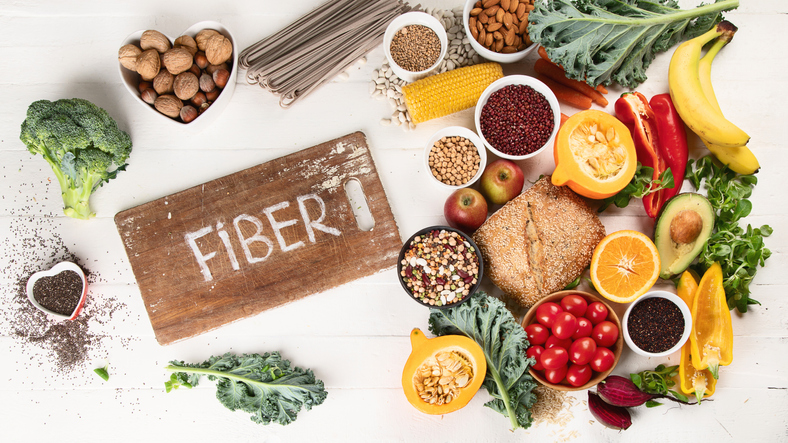In a recent study of general knowledge about dietary fiber, the Kellogg Company found that Americans are not-so-surprisingly, not-so-knowledgeable about the roles and sources of dietary fiber.
Kellog’s research

In a study of 1,006 adults conducted in November 2010, Kellogg’s found that of those surveyed:
- 20% mistakenly believed that meats and seafood are a good source of fiber
- 17% thought dairy contains fiber
- 10% believed that water has fiber
- 15% thought that fiber is important only for promoting bowel regularity
- 72% surveyed expected whole-grain foods to be good sources of fiber when they aren’t necessarily aren’t
Conclusions drawn from the research

The general population’s knowledge deficit about fiber isn’t surprising: Americans get less than half the amount of fiber they need each day.
Simple studies pointing out fundamental fiber knowledge gaps are good PR tools for cereal companies; a nearly similar study covered recently in this blog was conducted by General Mills with almost equivalent results.
While ready-to-eat breakfast cereals can be a good source of whole grain and dietary fiber, it is important to look for those that don’t contain added, functional fibers but that do have a minimal amount of added sugars. See this recent post for a list of recommended breakfast cereals that are high in fiber, low in sugar, and iron-fortified.
FAQ- Fiber: Not Your Strong Point
1. How many kinds of fibers are there?
There are a total of three kinds of fibers and to no one’s surprise, all three of them are important for our diet. We need all three of them to thrive and each of them has its own way of helping us stay healthy. These three fibers include insoluble fiber, soluble fiber, and prebiotic fiber.
Each of these three kinds of fibers has its own purpose. Insoluble fiber absorbs fluids and helps in bowels movements. Soluble fibers collect waste products that have to be excreted from the body. Prebiotic fibers promote healthy gut bacteria which helps in digestion and our overall health.
2. What exactly is fiber?
Everyone recommends increasing the amount of fiber we consume or they suggest we change to a fiber-rich diet. However, what exactly is this ‘fiber’ that everyone keeps mentioning?
Fiber is essentially a kind of carbohydrate that our body cannot digest. Unlike other carbohydrates, fiber cannot be broken into sugar molecules. It simply passes through undigested. Because our body does not break down fiber, many assume that it is not as important as other kinds of food. However, fiber has many benefits.
Some benefits of having a high fiber diet include regulating blood sugar levels in our body, helping keep hunger at bay, preventing many kinds of cancers, and more.
3. What foods can we consume to reach our daily fiber goals?
Ensuring that your diet is high in fiber has many benefits. It not only helps your bowel movements but also ensures that you are safe from various diseases. Consuming enough fiber can help you prevent colon cancer, breast cancer, cardiovascular diseases, and many more life-threatening diseases. Hence, fiber should not be taken lightly at any cost.
If you are looking to increase your fiber intake, there are many ways you can do so. The items listed below are considered high in fiber and can help boost your daily fiber intake.
- Apples
- Wholegrain cereals
- Whole grain pasta
- Whole grain bread
- Bananas
- Nuts
- Brocolli
- Baked potatoes
- Carrots
- Raspberries
- Avocadoes
- Beans
- Pulses
4. What kind of fiber should you consume if you have constipation?
If you are suffering from constipation then consuming fiber is the best way to get rid of that uncomfortable and frankly painful feeling.
We suggest that you increase your intake of soluble fibers. Foods that have soluble fiber include apples, barley oats, beans, lentils, whole grain, and bananas.
Insoluble fibers can also be invaluable in helping speed up things in your guts. The main purpose of soluble fibers is to help quicken the process of food moving through your digestive tract. Upping your intake of soluble fibers can help move things along faster and prevent constipation.
Foods such as whole grains, wheat bran, legumes, certain vegetables like avocadoes, and more are good sources of insoluble fiber.
5. Can we eat too much fiber?
Yes. Although many of us are guilty of not eating enough fiber, it is possible to eat too much. This can happen if one consumes too much fiber at once or increases their fiber intake overnight. Because our body is not used to it, it may show some adverse effects. These effects may include bloating, abdominal pain, and overall discomfort.
Conclusion
It comes as no surprise that many adults do not consume an adequate amount of fiber. This can be due to a variety of reasons. One reason may be that they simply do not understand the importance of fiber. Fiber is more than something our body cannot digest. It is something that helps keep our digestive track running while also protecting us from various kinds of diseases.
This article provides you with some preliminary information about fiber so you can know more about this whole food group and its importance in our diets and our lives.

